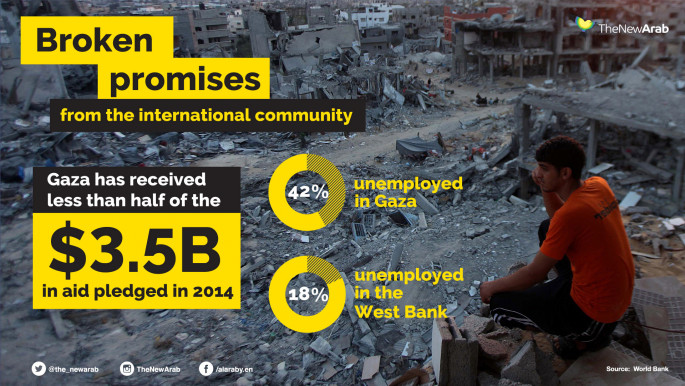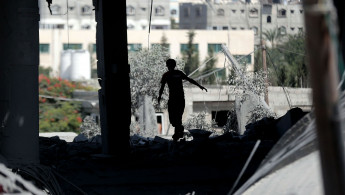Gaza plunging deeper into a humanitarian crisis
Practical changes in Gaza, as well as full Israeli cooperation is necessary to rescue the stagnant Palestinian economy, a report ahead of an international donor conference next week said, noting foreign aid alone is not enough.
"During summer and winter peaks the scarce electricity supply is increasingly rationed to four hours during daytime," the report quotes the bank's West Bank and Gaza director Marina Wes as saying, referring to Gaza’s only electricity plant.
"Recently, this situation has become the norm leaving Gazans without electricity during most of the day. This has created a humanitarian crisis for Gaza’s two million people."
The shortages hit hospitals, clinics, water supply and other vital services, as well as household needs, she said.
 |
|
Hamas has governed Gaza since 2007 when it took over control from the Ramallah-based Fatah organisation of Palestinian President Mahmoud Abbas.
Diesel is imported for the generators through Abbas's Palestinian Authority (PA), but the rivals are in constant dispute over payment, leading to constant shortages.
In January, protests broke out over the power cuts, which the Gaza health ministry warned could have "dangerous consequences" for patients.
"The PA needs to address reforms to ensure that payment obligations to electricity suppliers are met as this will encourage the needed private generation investment," the bank said.
"This is particularly important in Gaza to allow the construction of a high-voltage line from Israel to contribute to the relief of the energy crisis."
The Strip’s problems are exacerbated by years of Israeli land, air and sea blockade, and plunged further into destruction in the summer of 2014 when it was heavily battered in an Israeli attack that killed more than 2,200 Palestinians.
"Easing of Israeli restrictions on external trade... and opening up access to Gaza is essential to expand private sector growth and employment," the report said.
"If both the PA and the Government of Israel implement changes, the impact of donor aid would increase significantly," it added.
The report is to be presented at a May 4 meeting in Brussels of the Ad Hoc Liaison Committee, which coordinates international donor support for the Palestinians.
US President Donald Trump is to host Abbas at the White House the day before, for talks on efforts to revive the Middle East peace process.
Agencies contributed to this report





 Follow the Middle East's top stories in English at The New Arab on Google News
Follow the Middle East's top stories in English at The New Arab on Google News
![The UAE is widely suspected of arming the RSF militia [Getty]](/sites/default/files/styles/image_330x185/public/2024-11/GettyImages-472529908.jpg?h=69f2b9d0&itok=Yauw3YTG)
![Netanyahu furiously denounced the ICC [Getty]](/sites/default/files/styles/image_330x185/public/2024-11/GettyImages-2169352575.jpg?h=199d8c1f&itok=-vRiruf5)
![Both Hamas and the Palestinian Authority welcomed the ICC arrest warrants [Getty]](/sites/default/files/styles/image_330x185/public/2024-11/GettyImages-2178351173.jpg?h=199d8c1f&itok=TV858iVg)